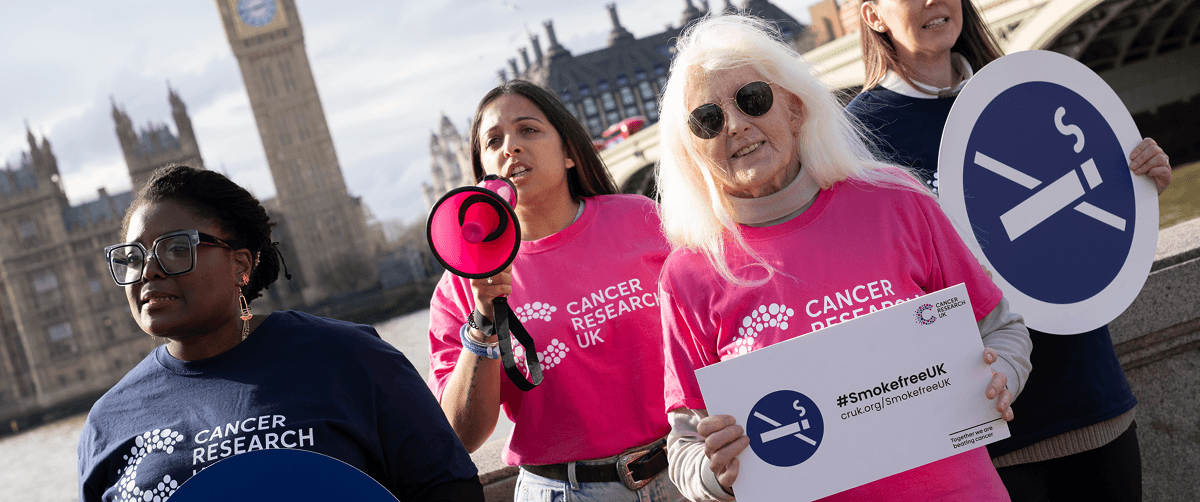
Radiotherapy is cutting-edge, curative and cost-effective. We want every person having radiotherapy to have high-quality, modern radiotherapy, and for there to be equitable access to the most innovative types of treatments across the UK.
Radiotherapy is a key cancer treatment and is offered in both curative and palliative care. For all cancers combined *, 29.5% of patients diagnosed between 2013 and 2021 received radiotherapy as part of their primary course of treatment.
Radiotherapy is highly cost-effective, but due to a lack of capital, many radiotherapy machines are in use beyond their recommended lifespan.
As part of government efforts to transform the NHS, we need to see investment to maintain and upgrade our radiotherapy infrastructure. This must include annual funding to replace radiotherapy machines on a rolling basis as machines exceed their operational lifespan. This will help meet waiting times by improving service efficiency and supporting the adoption of radiotherapy innovations. Read more on the innovations in radiotherapy here.
The radiotherapy dataset (RTDS) held by NHS Digital has seen huge improvements over the last decade which has enabled CRUK and other stakeholders to carry out much more complete analysis of patient access and outcomes. Improving cancer data capture and access should be made an ongoing priority for health sector decision makers and digital leads as this would help improve identification and understanding of variation in access further.
Amidst wider NHS staff shortages, there are significant shortages of the specialist staff who give radiotherapy treatments. Based on Health Education England’s (HEE) 2018 estimate, the NHS in England will require an aggregate growth of 45% in its cancer workforce by 2029 to deliver worldclass cancer services. In comparison, the therapeutic radiotherapy workforce grew by 28% between 2012 and 2021.
Census results published in May 2024 by the Royal College of Radiologists showed that there is a 15% shortfall of consultant clinical oncologists who plan and oversee radiotherapy treatment. The results also showed an 8% shortfall of therapeutic radiographers and an 8% average shortfall across the radio therapy physics professions.
*‘All Cancers Combined’ includes all malignant neoplasms with surgery defined, excluding BCC, cSCC and rare skin cancers.
Policy position statement on the future of radiotherapy services in England (May 2023)(PDF, 441 KB)
CRUK briefing on radiotherapy for parliamentary debate (July 2019)(PDF, 621 KB)
Policy Briefing on the Future of Proton Beam Therapy in the UK (June 2019)(PDF, 2.21 MB)
Response to the APPG on Radiotherapy’s Inquiry (June 2019)(PDF, 2.88 MB)
Letter to NHS England regarding radiotherapy in the long-term plan (November 2018)(PDF, 569 KB)
Cancer Research UK position on NHS England’s radiotherapy modernisation programme (August 2018)(PDF, 114 KB)
Response to NHS England’s consultation on modernising radiotherapy services (January 2018)(PDF, 439 KB)
Vision for Radiotherapy 2014-24(PDF, 8.83 MB)
Cancer Research UK principles for supporting radiotherapy research in England (January 2016)(PDF, 512 KB)

Our Voice for Radiotherapy campaign prompted £23 million of Government support for radiotherapy centres in England.

From earlier diagnosis to treatment, prevention, and research – our campaigner community drives political action to help beat cancer.
Get in touch with our policy team to find out more information about our work and our policies.
Email the teamNews, updates and opinion, posted weekly.
Get in touch.